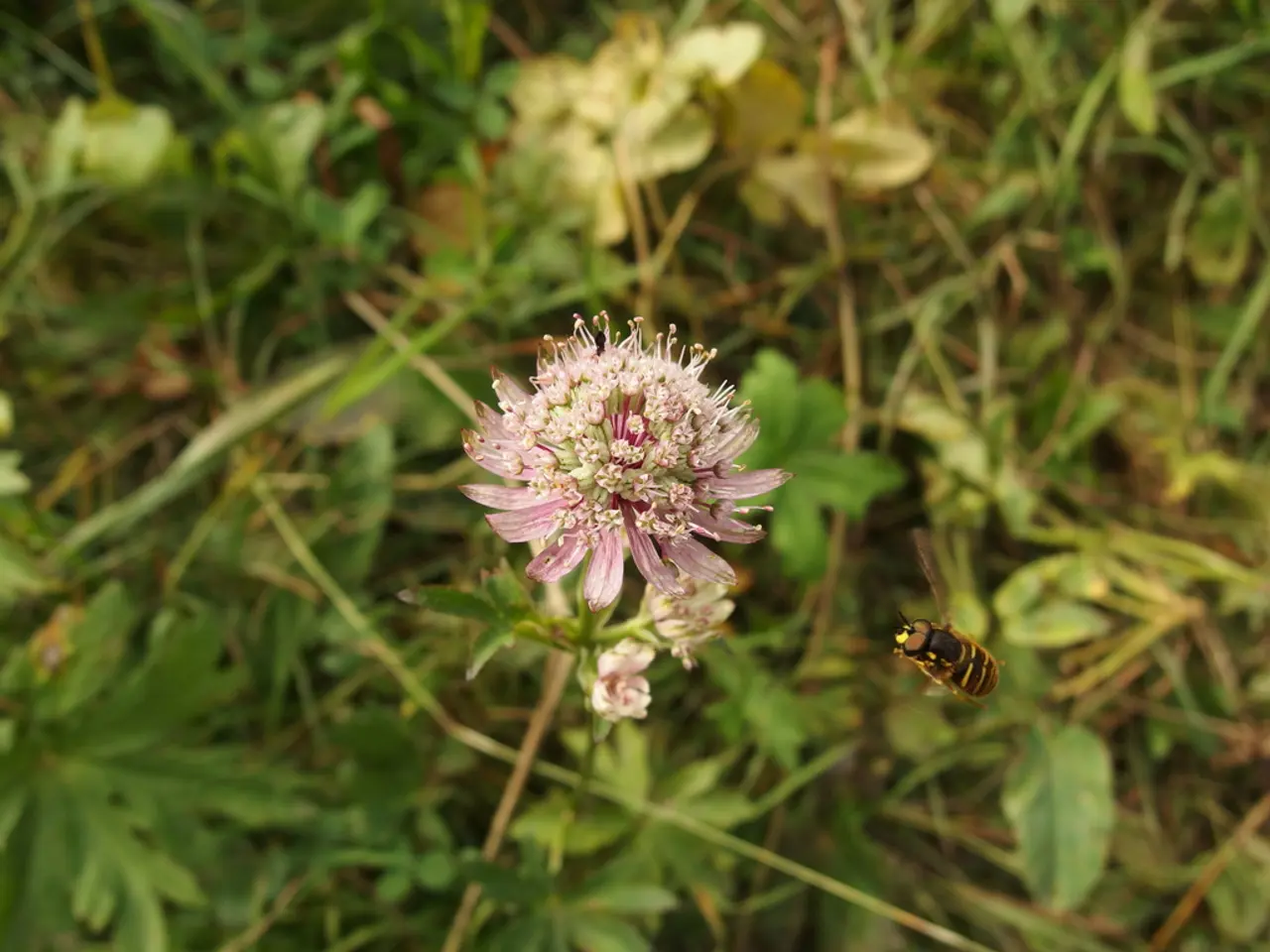Intensified advocacy for increased pesticide use
In Germany, proposals to weaken the Federal Environmental Agency's (Umweltbundesamt) veto rights in pesticide approvals have sparked debate, with concerns that such changes could have significant negative environmental implications.
If the Agency’s veto rights are curtailed, pesticide companies could potentially gain greater control over approvals by submitting their own safety data without sufficient independent verification. This could heighten the risk of biased or manipulated safety studies influencing decisions, leading to increased environmental damage.
Loosening veto powers could result in the approval of pesticides prone to drift or off-target effects, damaging neighboring crops, wild flora, and fauna. This could cause yield losses for farmers and broader ecosystem harm.
Moreover, some pesticides promote antibiotic resistance in bacteria, posing public health and environmental risks. The reduction of the Agency's veto rights could increase the exposure to such risky chemicals.
Reduced corporate accountability is another key concern. Removing or limiting agency veto rights could create a legal environment that shields companies from responsibility for environmental harm, thereby encouraging cutting corners or misinformation.
Comparable international cases, such as Brazil’s "devastation bill," show that weakening environmental agencies’ control over permits can undermine climate, biodiversity, and human rights protections.
It's important to note that the loss of field wildflowers, which serve as food and habitat for numerous insects and vertebrates, is not considered in pesticide legislation. Insects that feed on sprayed plant material are also not assessed in pesticide approval.
The gaps in pesticide legislation are considered a scandal, and the Federal Environmental Agency has raised concerns about the overlooked effects of pesticides on nature. The Agency is trying to close these gaps by making the best of the deficient law.
Recent studies have shown that frogs can die directly from spraying with usual amounts of pesticides, and the populations of skylarks and stonechats have dramatically declined, according to UBA figures.
Despite these concerns, the agriculture and chemistry industry is advocating for more pesticides in Berlin, despite potential environmental harm. The demands of industry associations to abolish the veto right of the Federal Environmental Agency in the approval of pesticides are being considered irresponsible.
However, there is no competitive disadvantage for German farmers due to the limited availability of pesticides, as more active substances were regularly approved in 2024 than in countries like the Netherlands or Poland.
In conclusion, weakening the veto rights of Germany’s Federal Environmental Agency in pesticide regulation would likely degrade environmental safeguards, enable greater exposure to risky chemicals, reduce transparency and accountability, and increase ecological and public health hazards. Strong independent regulatory oversight remains critical for preventing harmful pesticide impacts.
Sources: [1] Environmental Health News [2] The Guardian [4] Bundesverband Landwirtschaftlicher Natur- und Umweltschutz
- Reduced regulatory oversight on pesticide approvals, such as weakening the veto rights of the Federal Environmental Agency, may escalate the use of untested and potentially hazardous chemicals in the realm of science, including environmental-science and health-and-wellness.
- The proposed changes could allow pesticide companies to manipulate safety studies, increasing the risk of environmental damage not only for flora and fauna but also for fitness-and-exercise enthusiasts who may be impacted by changes in agricultural practices due to the increased use of these chemicals.
- As climate-change continues to be a pressing global issue, it is crucial to maintain strong independent regulatory agencies like the Federal Environmental Agency, to ensure they can effectively address the complex environmental and public health challenges that lie ahead.




